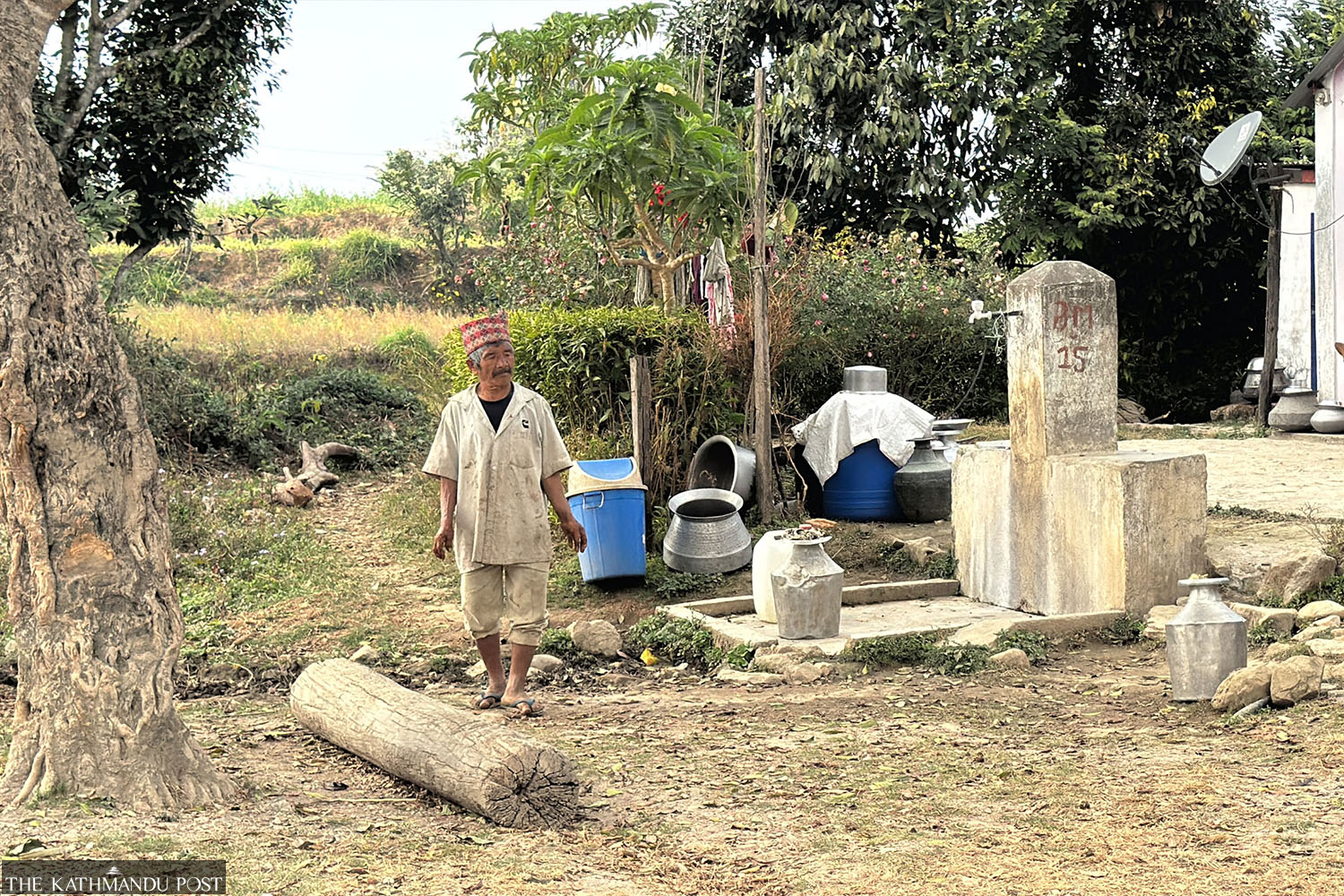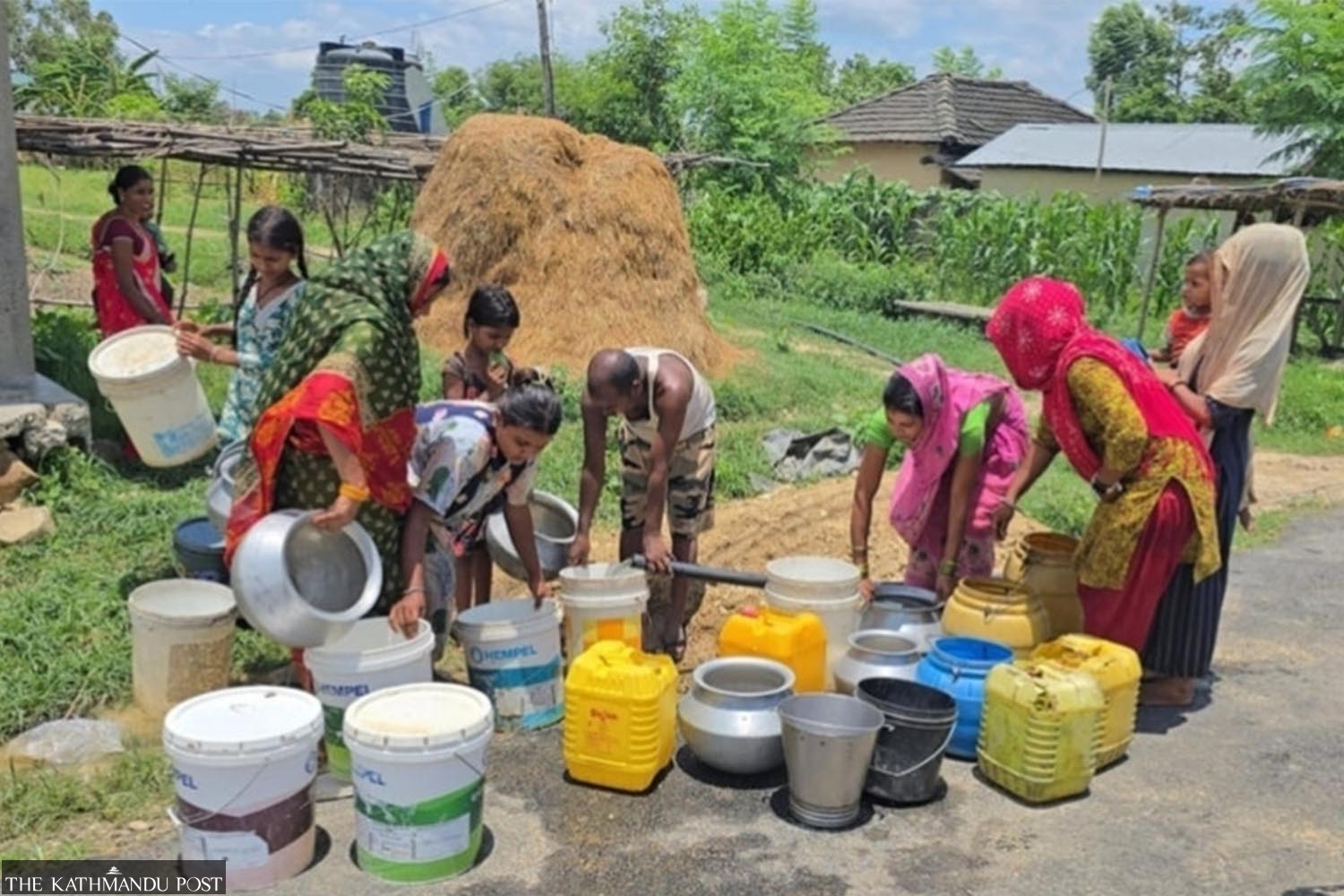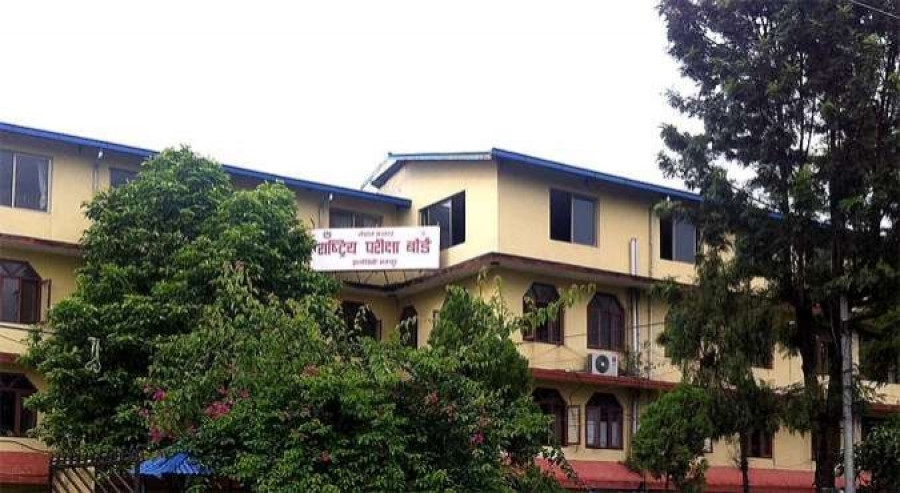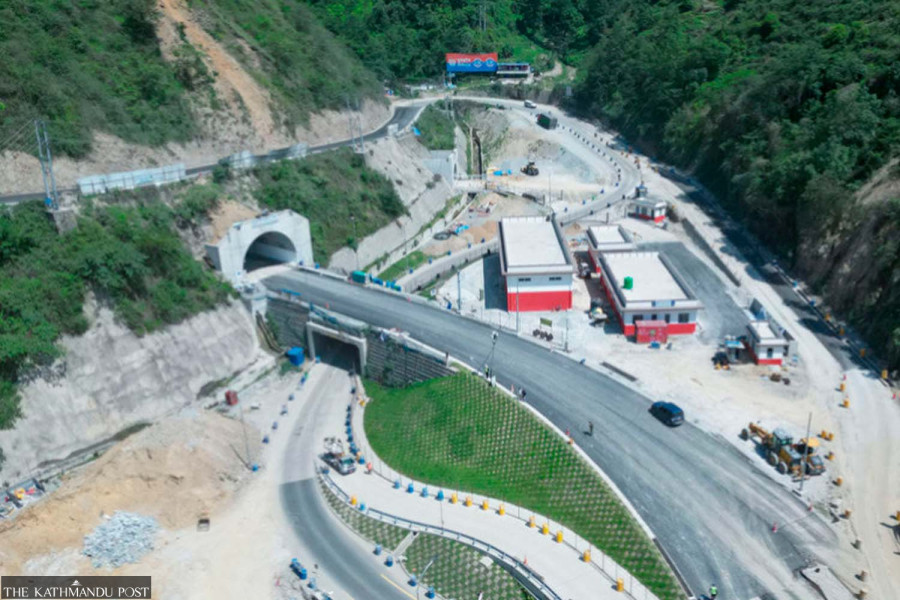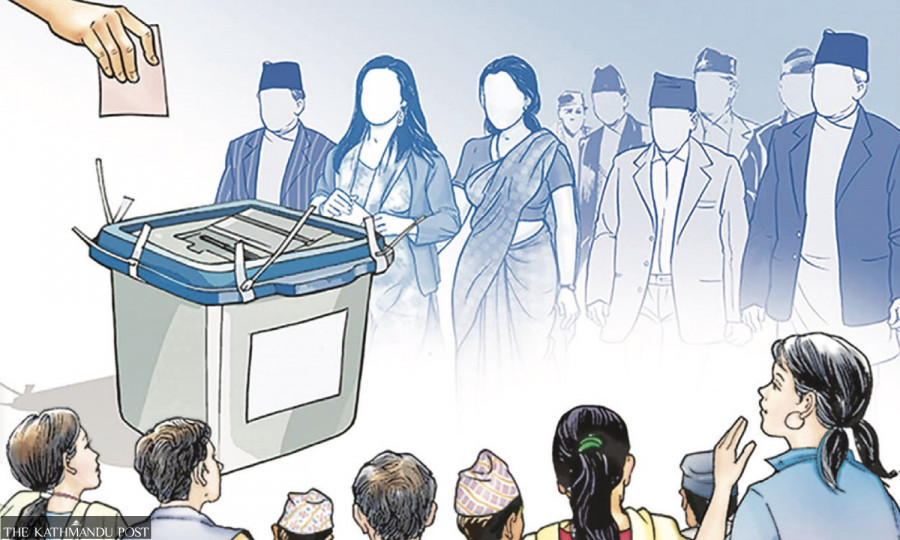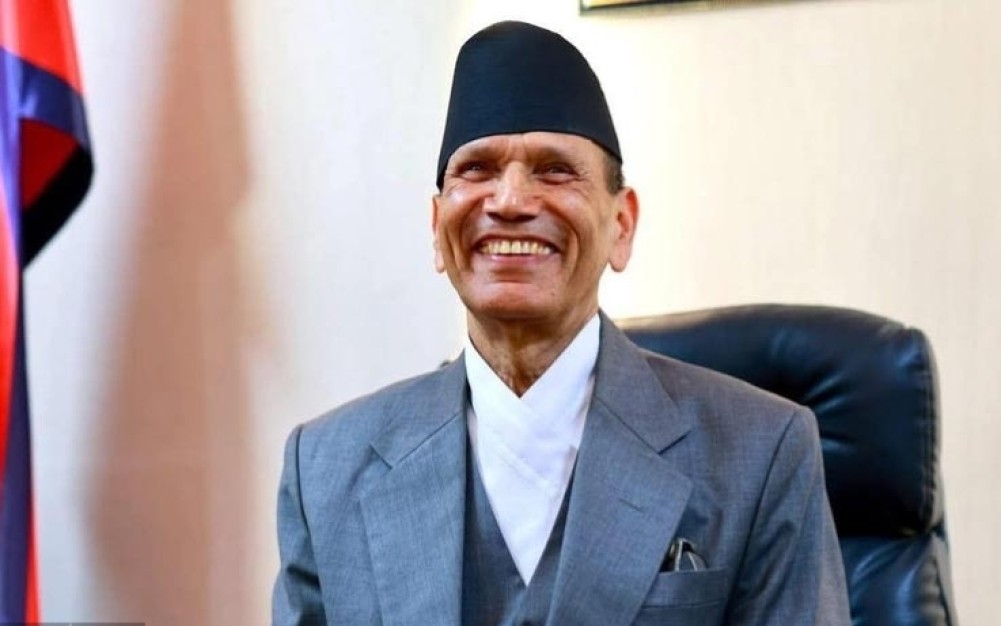National
Nepal’s labour migration policy: by men, for men
Years of protectionist mindset towards women migrant labourers has only made them more vulnerable to seeking dangerous routes for work abroad, while risking trafficking and exploitation..jpg)
Bhrikuti Rai
The Department of Foreign Employment has been on a roll.
In the past two years, it pushed a slew of reforms, from hearing complaints from migrant workers every day—not just once a week like it used to earlier—to issuing work permits from outside the Kathmandu Valley. Last week, the department announced that it had collected more than Rs45 million from recruiting agencies and sub-agents over the last six months to pay compensations to the migrant workers who had filed fraud complaints. For comparison, the amount it collected last week is six times what it collected in the same period last fiscal year.
However, these headline-making reforms don’t account for the suffering of Nepali women migrant workers, according to rights activists. The state’s restrictive migration policies are not just forcing women into greater exploitation but are leading them to become ineligible to the Department of Foreign Employment’s new policies and benefits.
Take the case of Sabina Rai, for example. The 24-year-old woman died in Baghdad over a year-and-a-half ago, and her body remains unclaimed at a hospital in the Iraqi capital. She had entered Iraq to work as domestic help through many sub-agents and several stops across Nepal and India.
Since 1998, Nepal government has, on and off, banned women from migrating to foreign countries for work in the informal sector, primarily as domestic help. Earlier this year, it resumed renewing labour permits for those who had older permits to work in the informal sector in the Gulf, but stopped short of reforms that would allow first-timers to seek employment as domestic help. So like Rai, thousands of women continue to leave the country with the help of unscrupulous agents.
Of the thousands of fraud complaints lodged at the Department of Foreign Employment, the vast majority are from men, as they make up an overwhelmingly large chunk of documented Nepali migrant workers. Last fiscal year, of the 208,352 labour permits issued from the department, less than 10 percent were for women.
But the government says that its hands are tied when it comes to making sure Nepali women working abroad, who may have been deceived just like their male counterparts, have access to the existing grievance mechanism.
“Helping migrant workers without labour permits falls outside our jurisdiction,” said Bhola Nath Guragain, spokesperson for the Department of Foreign Employment. “Without document or evidence, we can’t act, and how do we trust them?”
Migration experts say the negligible number of documented female migrant workers is because of the government’s erratic bans on women from taking up jobs in the informal sector, mostly as domestic help in countries across the Middle East, which have a high demand for such labour and are also the most lucrative. As a result, most female Nepali migrant workers who seek underground ways to secure jobs in the informal sector and are not documented in the state’s system are excluded from the recent reforms.
“The lack of access to the state’s grievance mechanism is just the tip of the iceberg for women, who continue to face the brunt of decades of Nepal’s discriminatory labour migration policies,” said Sharu Joshi Shrestha, a gender and migration expert who sits on the task force team for reforms on foreign labor migration.
***
Getting a passport wasn’t always easy in Nepal. One had to come to Kathmandu to apply in person and submit several kinds of paperwork at the Ministry of Foreign Affairs. It was only when Nepal began formulating pro-labour migration policies in the mid 1980s that passports became accessible to those who sought employment abroad.
But even when successive governments began prioritising foreign labour migration, Nepali men and women didn’t have equal access to foreign employment.
The Foreign Employment Act-1985 had prohibited recruitment agencies from providing “foreign employment to children and women without the consent of her guardian”. The Second Amendment to the Act in 1998 expanded the permissions required for women and children to take “permission of His Majesty’s Government and guardians”. A guardian was defined as the mother or father of an unmarried woman, or the husband of a married woman.
Shortly after the amendment, the government, in 1998, imposed a complete ban on the migration of women to the Gulf countries in response to the mysterious suicide of Kani Sherpa, who worked as a domestic worker in Kuwait. She was allegedly abused by her employer, which then pushed her to take her life. This marked the beginning of the state’s aggressive protectionist push towards Nepali women seeking employment abroad for their own “safety and security”, say migration experts. Since then, the ban has been partially lifted, only to be implemented again with a host of other varying bans with restrictions and conditions.
%20(2).jpg)
In 2012, Nepal imposed a ban on women less than 30 years of age from migrating as domestic workers to certain countries in the Middle East. Two years later, the ban was extended to a global scale, preventing Nepali women from seeking employment as domestic help anywhere in the world. The ban was expanded on the grounds that there was a need for stronger regulations to protect women from widespread abuse and exploitation.
The ban eventually got lifted partially but regulations were never formulated to benefit Nepali women, who have the same aspirations as men to work abroad. The list of restrictions on women only keeps getting longer. The age-specific ban on women from seeking jobs abroad moved from 30 years of age to 25 and then to 24, before a complete blanket ban on women seeking jobs as domestic help across all Gulf countries. This ban went into effect after a parliamentary committee ordered the government to ban all Nepalis, both men and women, from travelling to the Gulf countries as domestic workers.
According to migrant rights experts, these bans, even though they’ve been formulated to apply to the informal sector on a whole, disproportionately affect women because the majority of domestic workers tend to be women. The flip-flops of successive governments on these bans over the past three decades are a reflection of the state’s apathy towards ensuring equal access to foreign employment, say experts.
“The government needs to make strong policies to improve the working conditions of Nepali women abroad. Policies shouldn’t be incident-based, like they have been for all these years,” said labour and migration expert Ganesh Gurung, a former member of the National Planning Commission. “Labour policies need to be formulated by looking at things in totality.”
Gurung says inconsistent and discriminatory labour policies make women more vulnerable to trafficking and sexual and labour exploitation.
That is exactly what happened to Rita two years ago when she landed in Oman for work. Rita, who hails from Salyan and asked only to be identified using a pseudonym, said she was initially told she’d be sent to Kuwait directly via Kathmandu. But instead, it took more than a month of perilous journey across India, China and Sri Lanka before she landed in Oman. Like most women who end up in countries on the ban list, Rita too said she didn’t have any idea about the existing bans or the documents required for employment abroad.
“The agent in Salyan told me he would get all my papers, and promised me a well paying job as domestic help,” she told the Post.
But later, when she was subjected to unforgiving working hours and repeated sexual assaults and rape at her workplace, she wasn’t able to get in touch either with her family or the agent who sent her there. In the end, she returned to Nepal with a toddler born out of rape, and no money. Her family in Salyan has since shunned her, she said. Since her return, she’s taken refuge at a shelter home run by Pourakhi, an NGO which rehabilitates migrant workers like her.
Besides trying to find a work in Kathmandu to take care of her infant son, Rita says she has been trying to get in touch with the agent who promised her a lucrative job in Kuwait. On his suggestion, she left her pair of gold earrings and marriage certificate with him. But more than a year since her return, she hasn't been able to get either of them back.
“I trusted him and handed him my things and now I have nothing,” she said.
Unlike male migrant workers who work in the formal sector and are thus documented, Rita doesn’t even have the option of lodging a fraud complaint at the Department of Foreign Employment.
Satra Gurung of Pourakhi says that the state’s “protectionist mindset” has hampered Nepali women's mobility and also crippled them financially. The varying bans haven’t stopped people from going to countries where Nepalis are forbidden to take up work in the informal sector; they have only marginalised women further.
“A ban is not the solution, because there is nothing an empty stomach won’t do. It will find ways,” she said. “If you close the door, it will break the window to escape. If you lock the window, people will escape by digging a tunnel. They will either die or try everything to escape.”
Earlier this year, Indian Police rescued 179 Nepalis, of whom 147 were women, from its Myanmar border and sent them to Nepal. Of them, 41 women said they were on their way to Iraq. Activists say that this incident shows how women make up a large portion of those seeking job opportunities in countries that have been deemed dangerous and banned.
Satra says that Nepal needs to act urgently and learn from the policies of other countries, like the Philippines, to ensure that the government has bargaining power with the receiving country. Nepali activists say that in the Philippines, unlike in Nepal, different ministries and state agencies work in coordination without a rigid hierarchy when it comes to dealing with the concerns of its citizens working abroad.
***
Not all women necessarily face abuse when they work in the informal sector, like domestic help. But in the absence of a governmental policy that allows them to work freely, they are forced to live in constant fear, stay apart from their families for an extended period of time, and face hassles if they decide to come home.
Kriti, who also asked not to be identified by her real name, moved to Hong Kong to work as domestic help three years ago on forged documents, presenting herself as an Indian citizen. Raised by an illiterate single mother in the hills of eastern Nepal, she said she didn’t have much hope of finding a well-paying job in Nepal, despite holding a bachelor's degree. Since Nepalis are barred from working in Hong Kong, she had to take multiple trips to India to get her forged papers, and pay nearly a Rs100,000 in ‘setting fees’ at the Tribhuvan International Airport before flying out.
“It’s nice here in Hong Kong,” she said. “The only issue is visiting family in Nepal because of the restrictions.” During her last and only visit to Nepal after leaving in 2016, she had to fly in and out of Delhi and then travel to Nepal.
Government officials who have been part of migrant labour law reform committees say that unless there are policies to address the concerns of Nepali workers, both men and women, in the informal sector, their plight will continue.
“Domestic workers need to have a recourse too. They can’t let isolated incident-driven decisions hamper their lives,” said Purna Chandra Bhattarai, a former government secretary and labour analyst. “We need to initiate memorandums with countries where there is a high demand in the informal sector so we are in a better position to negotiate.”
***
What do you think?
Dear reader, we’d like to hear from you. We regularly publish letters to the editor on contemporary issues or direct responses to something the Post has recently published. Please send your letters to [email protected] with "Letter to the Editor" in the subject line. Please include your name, location, and a contact address so one of our editors can reach out to you.




 21.12°C Kathmandu
21.12°C Kathmandu
